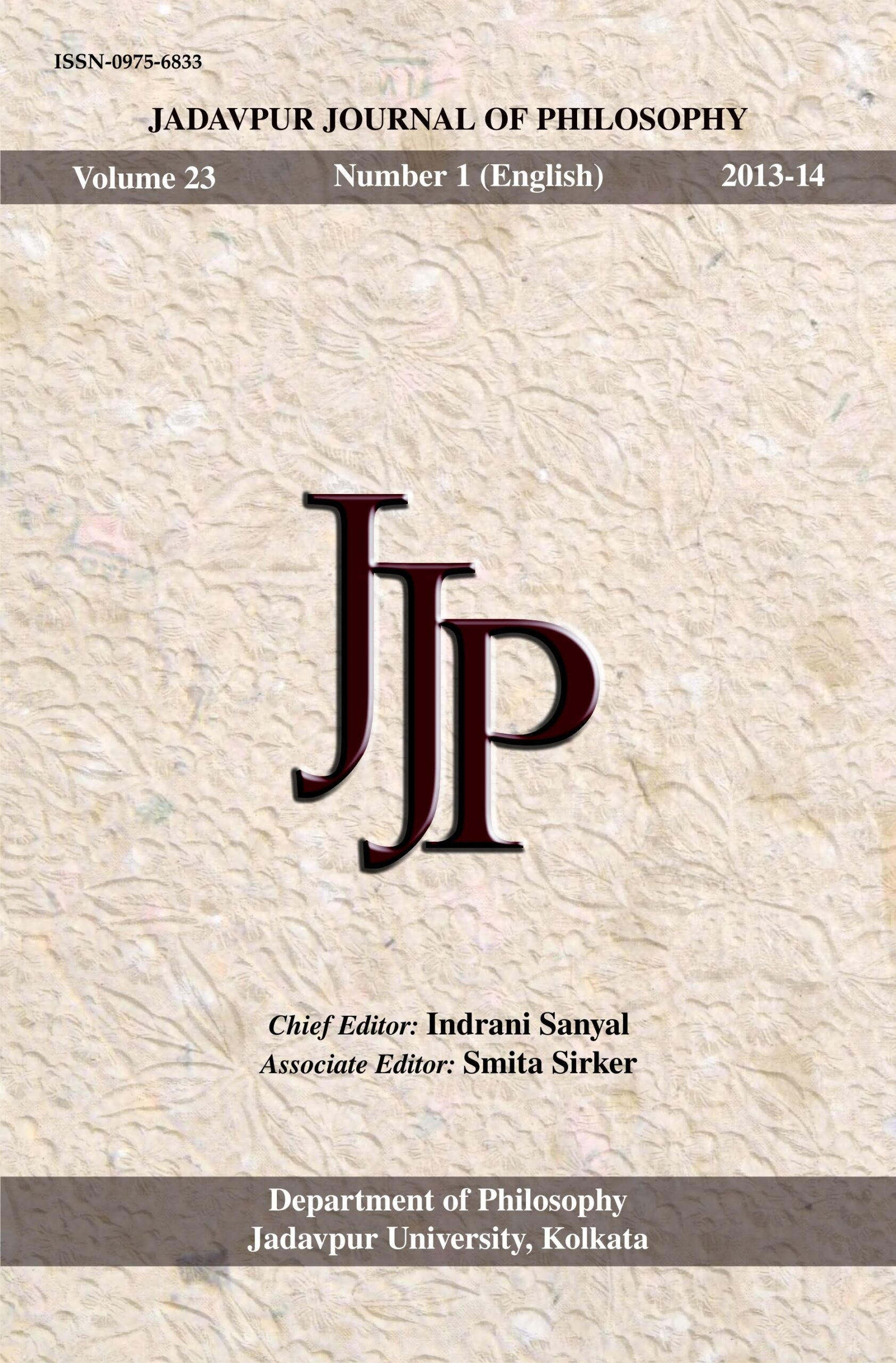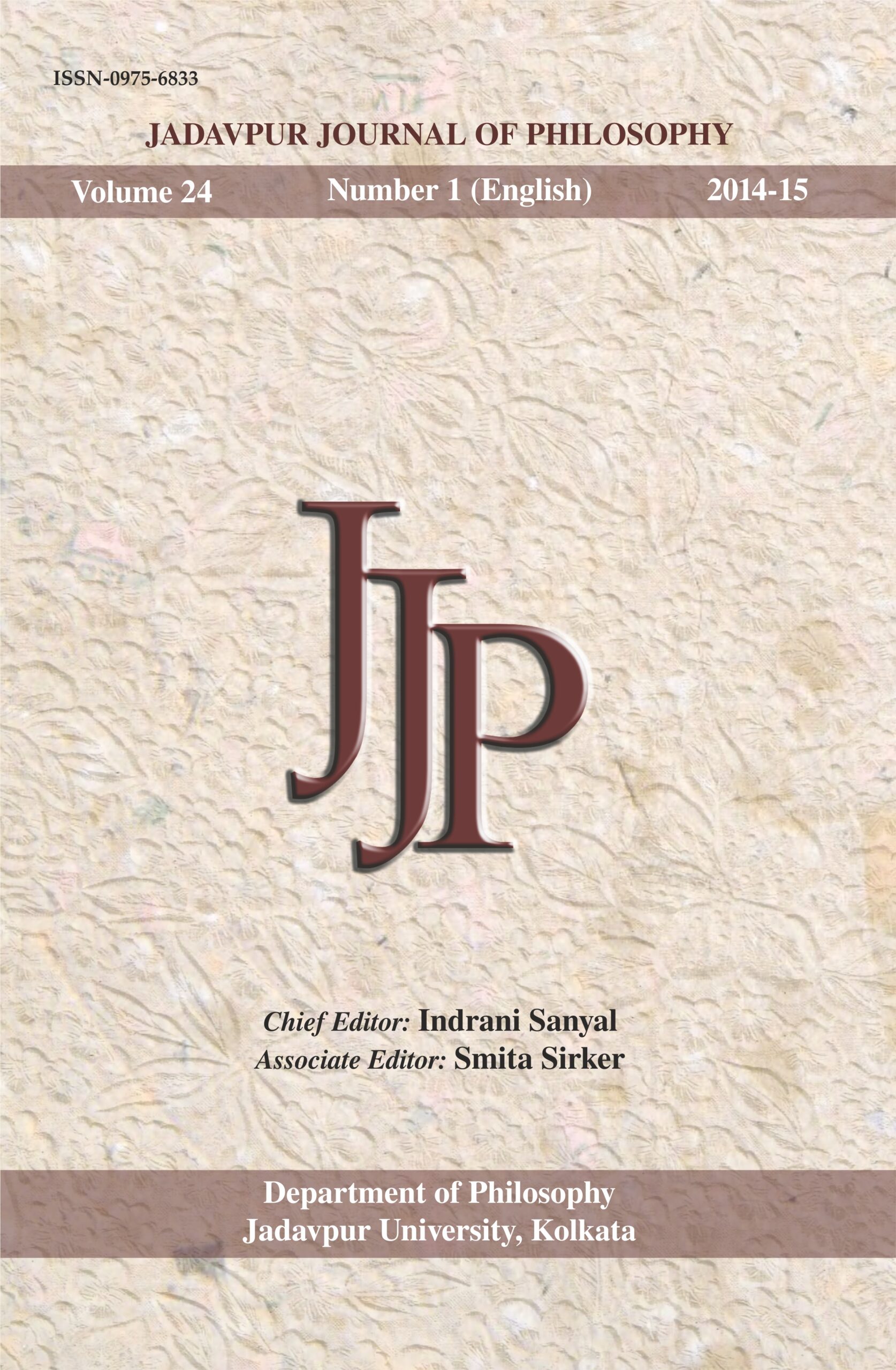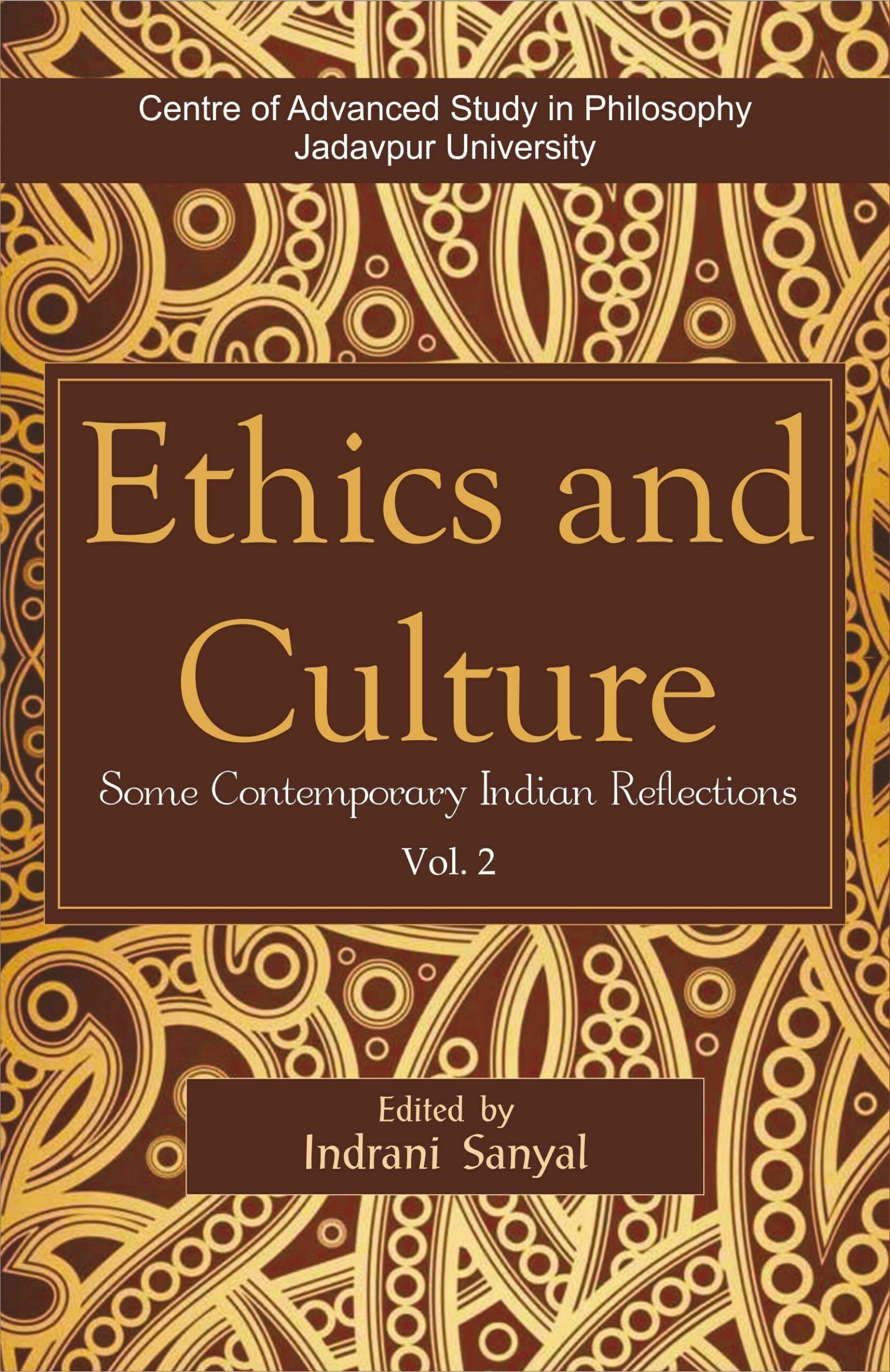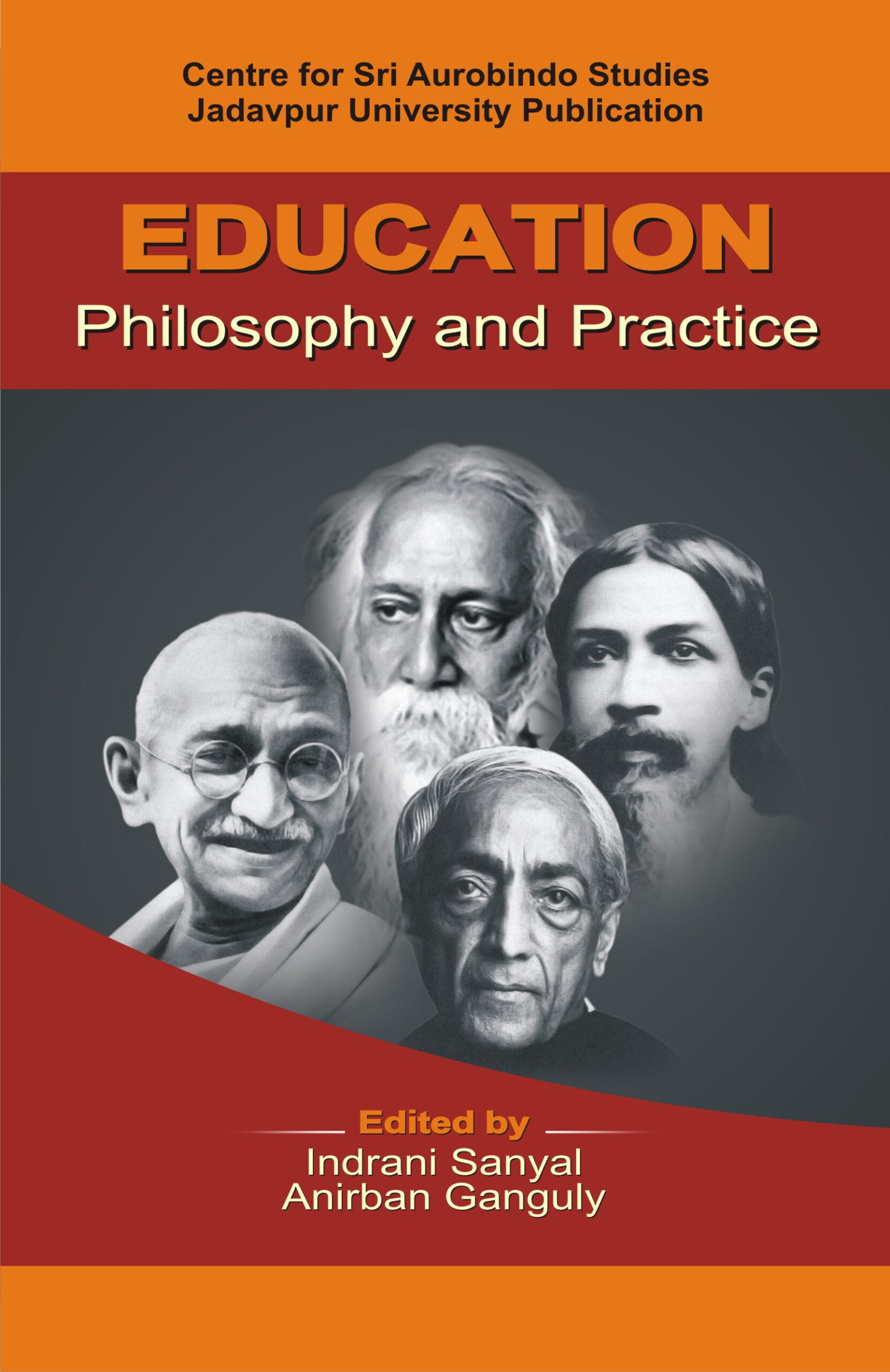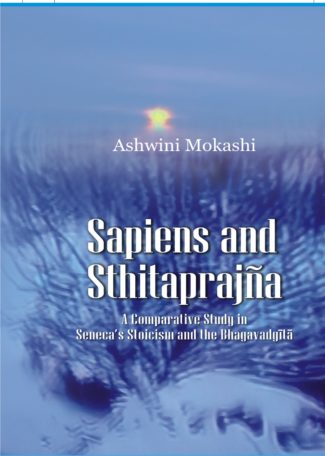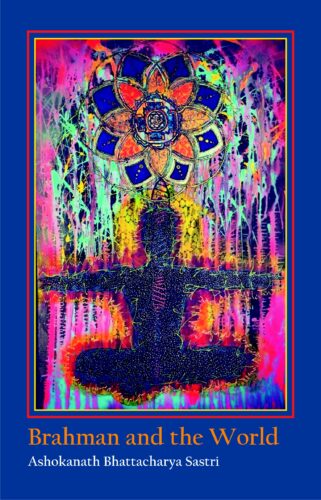

Jadavpur Journal of ...
Jadavpur Journal of Philosophy (Vol. 23, no. 1)
by: Indrani SanyalJadavpur Journal of Philosophy is a refereed, bi-issue journal, in English (No. 1) and Bengali (No. 2) published annually by the Department of Philosophy, Jadavpur University, Kolkata, India. The journal volume in Bengali is titled Darsan Biksa. The journal is devoted to the publication of original scholarly papers in any branch of philosophy. Its objective is to encourage contributions from scholars, dealing with specific philosophical problems connected with their respective fields of specialization.
₹300.00 Original price was: ₹300.00.₹270.00Current price is: ₹270.00.
ISBN: 9788124607626
Year Of Publication: 2014
Edition: 1st
Pages : 171p.
Language : English
Binding : Paperback
Publisher: Jadavpur University
Size: 24
Weight: 350
Jadavpur Journal of Philosophy is a refereed, bi-issue journal, in English (No. 1) and Bengali (No. 2) published annually by the Department of Philosophy, Jadavpur University, Kolkata, India. The journal volume in Bengali is titled Darsan Biksa. The journal is devoted to the publication of original scholarly papers in any branch of philosophy. Its objective is to encourage contributions from scholars, dealing with specific philosophical problems connected with their respective fields of specialization.

- Sale!Action, Freedom and Responsibility by: Subasini Barik
₹750.00Original price was: ₹750.00.₹675.00Current price is: ₹675.00.This book, a work on human doing, analyses and applies three central aspects of human life – Action, Freedom and Responsibility – in the wide spectrum of the Philosophy of Mind. Reflections on these issues and their interconnections have a significant effect on the Philosophy of Value and application of ethical theories in practical life. This book even reconstructs the conceptual connection between action and freedom, on the one hand, and that between freedom and responsibility, on the other.
It also puts the concepts of freedom and determinism to critical test and reinterprets them from different angles and perspectives. The conventional doctrine of karma, based on the teachings of the Bhagavadgātā, is relieved from its usual deterministic presentation and a logically reasonable explanation is offered.
Human actions and human agency are central concepts in the philosophy of mind and action. Free will and responsibility constitute the bedrock of the moral life of the human agents and the book pinpoints that freedom is meant to undertake the goal-oriented actions. It is, therefore, focused on the enquiry into the various aspects of philosophy of mind, as well as the philosophy of value. - Sale!Sapiens and Sthitaprajna by: Ashwini A. Mokashi
₹800.00Original price was: ₹800.00.₹720.00Current price is: ₹720.00.Sapiens and Sthitaprajna studies the concept of a wise person in the Stoic Seneca and in the Bhagavadgita. Although the Gita and Seneca’s writings were composed at least two centuries apart and a continent apart, they have much in common in recommending a well-lived life. This book describes how in both a wise person is endowed with both virtue and wisdom, is moral, makes right judgements and takes responsibility for actions. A wise and virtuous person always enjoys happiness, as happiness consists in knowing that one has done the right thing at the right time.
Both Seneca and the Gita demand intellectual rigour and wisdom for leading a virtuous and effective life. They provide guidelines for how to become and be wise. Both systems demand a sage to be emotionally sound and devoid of passions. This leads to mental peace and balance, and ultimately tranquillity and happiness. While surveying these similarities, this study also finds differences in their ways of application of these ideas. The metaphysics of the Gita obliges the sage to practise meditation, while the Stoics require a sage to be a rational person committed to analysing and intellectualizing any situation.
This comparative study will be of interest to students of both Ancient Western and Ancient Indian Philosophy. Practitioners of Stoicism and followers of the Gita should find the presence of closely-related ideas in a very different tradition of interest while perhaps finding somewhat different prescriptions a spur to action. - Sale!Navya Nyaya Philosophy of Language by:
₹400.00Original price was: ₹400.00.₹360.00Current price is: ₹360.00.This book represents the philosophy of language in Navya-Nyaya, based upon an analysis of the “Verbal Suffix Chapter” (Akhyatavada) of Gangesha’s Tattvacintamani. Since this chapter elaborates what kind of verbal understanding is generated and discusses related issues, the book demonstrates the main features of that philosophy of language and serves as a good introduction to that. The analysis mainly deals with Gangesha, but in some cases it refers to Raghunatha. Since the book is an attempt to pursue philological exactness and philosophical analysis, it is hoped to interest not only Sanskrit scholars, but also philosophers in general.
The book consists of four lectures. Lecture I clarifies Gangesha’s view of the meaning of the suffixes of a finite verb, which (meaning) is greatly disputed among the Navya-Nyaya philosophers, the Mimamsa philosophers, and the Grammarians. Lecture II investigates how Gangesha determines the meaning of words and illustrates that his method bears upon ontological categories of Vaisheshika. Lecture III deals with Gangesha’s “Five Definitions of Invariable Concomitance Section” (Vyaptipancaka) and elucidates the relation between meaning and the logical structure of the definitions. The lecture also provides diagrams as a tool to represent the structure. Lecture IV explains the realistic standpoint of Navya-Nyaya by clarifying the concept of the counterpositive (pratiyogin) of absence (abhava), or a thing whose existence is negated, focusing on empty terms or non-factual expressions such as “a round triangle”, “the present King of France”, “a rabbit’s horn”, and so forth. The lecture delineates how Udayana, Gangesha, and Raghunatha observed and, as the time passed, did realism thoroughly in language analysis. - Sale!Vedanta Science and Technology: A Multidimensional Apporoach by: Girish Nath Jha, Bal Ram Singh, Sukalyan Sengupta,
₹3,000.00Original price was: ₹3,000.00.₹2,700.00Current price is: ₹2,700.00.Vedānta texts have been well known for their richness in fundamental scientific and technological principles with strong potential for research and development today. In fact, much of ancient India’s remarkable achievements in science and technology can be credited to Vedantic texts.
This volume – proceedings of the 22nd International Congress of Vedanta held during 27-30 December 2015 at Jawaharlal Nehru University, New Delhi – features 53 scholarly articles from a wide variety of areas of study. The 22nd Vedanta was a confluence of scholars from various disciplines and the papers in this volume bear the imprint of an intense discussion that is usually expected from a good Vedanta seminar. Though the majority of the papers are in English, a few are in Sanskrit and Hindi as well. The papers are grouped under Vedānta Studies, Vedānta and Philosophy, Vedānta and Science, Vedānta and Culture, Applied Vedānta, and Digital Access and Search of Sanskrit Texts.
This multidimensional approach extends the core scientific ideas of Vedānta to social, cultural, aesthetic and religious aspects of studies, creating a wide spectrum of intellectual discourse and trying to discover fundamental scientific and technological aspects of Vedānta studies.
Being a worthwhile addition to Vedānta studies, this volume should invoke keen interest among all those who are deeply into it, be a student, a researcher or a common reader. - Sale!Brahman and the World by: Ashokanath Battacharya Sastri
₹500.00Original price was: ₹500.00.₹450.00Current price is: ₹450.00.“The Vedānta has been rightly called the Finest Fruit of Indian Thought and the Upaniṣads as the Finer Flowers. Vedānta grows out of the teachings of the Upaniṣads and passes into the various systems in the writings of Śaṅkara, Bhāskara, Rāmānuja, Madhva and Vallabha, the great founders of Advaita, Bhedābheda, Viśiṣṭādvaita, Dvaitādvaita and Śuddhādvaita, respectively. However, there is a perception among Orientalists that while the Upaniṣads favour the Monistic doctrine, Bādarāyaṇa’s Brahmasūtra fundamentally opposes it on some of the most crucial points.
The book thus delves deep into the philosophies of both Bādarāyaṇa and Śaṅkara in enunciating the essential features of Brahman and Its association with the world. It thus discusses topics such as what sort of cause Brahman is?, and what sort of material causality is to be ascribed to It? It also addresses the conflicting views on the nature of Brahman like that of Vivarttavāda and of Rāmānuja’s Saguṇa-Brahman.
This book proposes to take up the question of Universal Causation to examine thoroughly as how far it is right to regard Brahman as the Universal Cause and how far sūtrakāra himself lent his support to each of the inter-conflicting schools of Vedānta. This book should, therefore, benefit all who are devoted to the philosophic teachings of Advaita Vedānta and its preceptors.”






